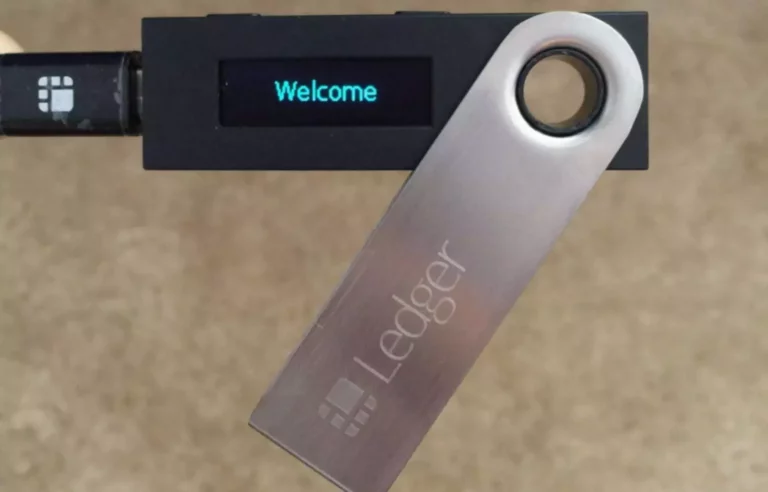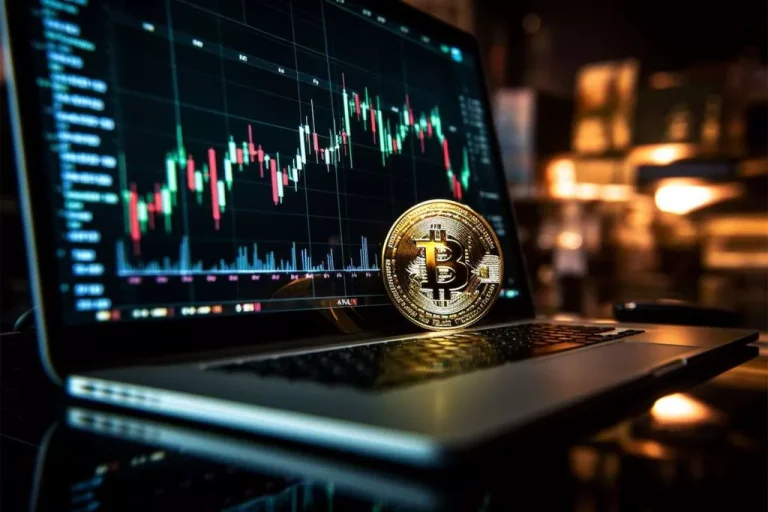Content
Another route to a greener operating model is the one championed by Cathy Wood, CEO of tech-focused hedge fund Ark Invest. This posits the view that growing Non-fungible token demand for energy will lead to greater investments into generating renewable energy, which will then be used for other applications as well as operating blockchains. It’s perhaps no surprise that finance remains the biggest category, since the first application of blockchain—bitcoin—is a digital currency. Technology (including hardware, software, social media, internet) applications is a close second, followed by efforts to improve processes in supply chain, manufacturing, and health care. Once all members had a common understanding of the technology through trainings and experiments, LaBChain enabled them to develop proof-of-concept projects on use cases such as collateral management, shared know your customer (KYC), and Euro tokenization. Now with more than 35 members, including regulators and researchers, LaBChain has become a gateway into the French blockchain ecosystem.
Global Consulting Blockchain and Digital Assets Lead Deloitte Consulting LLP

This year, the program will expand to Shenzhen, Shanghai, Chengdu and seven other cities. In particular, the growth of NFT use cases and the rise of the metaverse became headline trends, both of which have proven a natural fit for blockchain technology and have accelerated crypto adoption in the process. Furthermore, legal-tech innovation involves collaboration with governments blockchain industry trends and strong legal teams, slowing time-to-market. Solving the legal problem, implementing security measures, and insuring transactions in case of on-chain failures can enable the growth of on-chain liquidity. There are already protocols like the Astra Protocol equip smart contracts with a decentralized compliance layer to satisfy dispute resolution and KYC issues.
Best Travel Insurance Companies
One of the most notable advancements in 2021 pointed at the growth of DeFi space, with many new solution providers entering the field. New platforms with better technology and scalability have been defining the revised perceptions of efficiency in financial services. Interestingly, a new wave of assumptions about a https://www.xcritical.com/ DeFi 2.0 with new products has been making some noise for quite some time. The trend may continue forward in 2022, with technology improvements offering a vital boost to the evolution of DeFi. Therefore, the blockchain trends in 2022 would focus largely on a continuous flow of investments into blockchain-based applications.
Blockchain Trends: What Can We Expect in 2022?
The ledger stores the history of each and every operation executed on the channel by the involved parties so that data is easily accessible at the time of need as proof. In this article, we’re going to explore some of the most popular blockchain trends and what they spell for the industry at large. Also, we’re going to analyze some of the prominent narratives that could shape the industry.
- Many believe that greater regulation is a sure-fire way to promote the mass adoption of cryptocurrencies.
- China’s digital currency is being adopted by tech giants of the likes of Tencent and Alibaba, and driving growth for financial conglomerates.
- The greener operating models of blockchains like Ark Invest could drive blockchain growth in the future.
- The race to the metaverse has become the present day version of the space race.
- Online gaming platforms already follow this blockchain trend using tokens to create their own decentralized digital assets.
- Meeting the expectations of this younger, more digitally savvy customer base is a key priority for the company.
Appearances of the national cryptocurrencies

However, its potential uses are far broader, encompassing digital “smart” contracts, logistics and supply chain provenance and security, and protection against identity theft. There are countless others – blockchain evangelists say it can potentially be used to improve security and integrity in any system that involves multiple parties sharing access to a database. The use of blockchain technology to support the concept of Internet of Things is set to bloom in the near future. IoT is a strong network of interconnected computing devices and digital machines that facilitates exchange of data and information between them. Reports indicate that IoT will cause a surge in the volume of machine-to-machine transactions.
You can implement blockchain for creating a decentralized finance application as well as supply chain tracking applications. Blockchain is hugely compatible with the idea of the Internet of Things (IoT) because it is great for creating records of interactions and transactions between machines. It can potentially help to solve many problems around security as well as scalability due to the automated, encrypted, and immutable nature of blockchain ledgers and databases. It could even be used for machine-to-machine transactions – enabling micropayments to be made via cryptocurrencies when one machine or network needs to procure services from another. While this is an advanced use case that may involve us traveling a little further down the road before it impacts our day-to-day lives, it’s likely we will start to hear about more pilot projects and initial use cases in this field during 2022.

The companies use the lab to test fresh ideas, backed by Fujitsu’s technical expertise. The platform, launching in April, will trace the water as it’s purified, sold and delivered, and give companies the option to donate a portion of their purified water to water-scarce communities. The key direction the blockchain can be used is the tracking of vaccine distribution. With the cases of selling fake vaccines, it is important to have a way to prove the origin and the destination of the product.
The use of blockchain technology worked as the powerful catalyst supporting the entire decentralized ecosystem. In the metaverse, people use cryptocurrencies to purchase assets such as virtual land, resources, and tools to use in various gaming scenarios. Furthermore, these assets are “tokenized” on the blockchain in the form of non-fungible tokens (NFTs).
However, it is the gaming industry that has the largest potential – particularly with the rapid rise of the metaverse and play-to-earn gaming (which will be covered in part two of our trends overview). Here, NFTs can take on a wide array of different functionalities including rewards to gamers, special in-game characters and skins, as well as digital proof of ownership for land, property, and other in-game objects or elements. The bitcoin network first introduced blockchain technology to the world in 2009 and has to a large degree remained the dominant influence over crypto market price action ever since. However, 2021 saw the noticeable acceleration of the counter-cyclic movement already observed in 2020, where bitcoin dominance (the totality of crypto market cap owned by bitcoin relative to altcoins) continued to decline throughout the year. The first thing which can boost the element of utility in non-fungible tokens refers the growing use of the metaverse. You must notice how metaverse presents some new perspectives on ownership of digital assets.
And while internet startups with unsustainable or flawed business models didn’t survive the long haul, those with solid business strategies and execution became wildly successful. When the dust of the dot-com era settled, the companies left standing were the ones that built—or rebuilt—their business models around tangible business and customer need. Selling NFTs as collectibles enables people and organizations to build digital communities, engage fans and customers, and build their brands. Most important of all, a pilot project successfully demonstrated the potential of blockchain for faster identification of product recall scenarios.
As we know that blockchain mining is a rigorous process that involves heavy electricity consumption and energy release. The adverse environmental impact of mining was one of the main reasons for Tesla CEO Elon Musk to stop using Bitcoin as a payment tool for Tesla car purchases. This year we can expect more active participation from big tech firms in the field of Metaverse. Multinationals like Google and Facebook might come up with new innovations and products in the sector.
Companies have been exploring new use cases with the latest advances in blockchain technology, such as new classes of assets and stronger encryption mechanisms. The trends in the blockchain industry are more important than ever for enterprise owners today, especially considering the way blockchain is expanding across various sectors. The question might be a bit obsolete, especially considering the fact that blockchain technology is beyond the hype phase. Now, people are trying to learn more about the technology and how it can help in transforming many legacy systems. Most important of all, new blockchain technologies have changed the conventional perceptions about applications of blockchain only in cryptocurrencies. Interoperability and cross-chain communications between blockchain networks have become an essential component of the modern DeFi protocol.
Starting from April 1st 2022 India will tax all virtual digital assets at 30% without any exemptions, this places the tax on income from cryptocurrencies on par with taxes on lottery winnings and gambling. Meanwhile El-Salvador’s decision to accept cryptocurrencies as legal tender was met with backlash from the IMF and a drop in its credit rating by major rating agency Fitch Ratings. The USA and UK tax crypto earnings on par with taxes on stock trading, while in Germany for the crypto that you have owned for more than a year, the sale is tax-free regardless of the profit. Building off the massive investments in gaming, 2021 also saw an increased focus on the creation of virtual worlds known as the Metaverse. Events being broadcast directly in the Metaverse or on virtual e-commerce platforms will provide attendees with merchandise from the event.
This article explores the trends that will shape the blockchain industry in the year ahead, and I hope to also offer what these trends mean for organizations today. Alex Lemberg, CEO of Nimbus Platform, told INN he thinks bitcoin is in a bear market right now. However, that will not impact some of the effects that the rise of bitcoin has had on other blockchain-related opportunities and trends, such as decentralized finance — also known as DeFi — which his firm is deeply invested in. The world of blockchain ventures is vast, ranging from cryptocurrencies to non-fungible tokens (NFTs). The possibilities seem endless on this side of the digital market, and thanks to increasing interest and adoption, 2022 is shaping up to be a landmark year for the space as a whole.